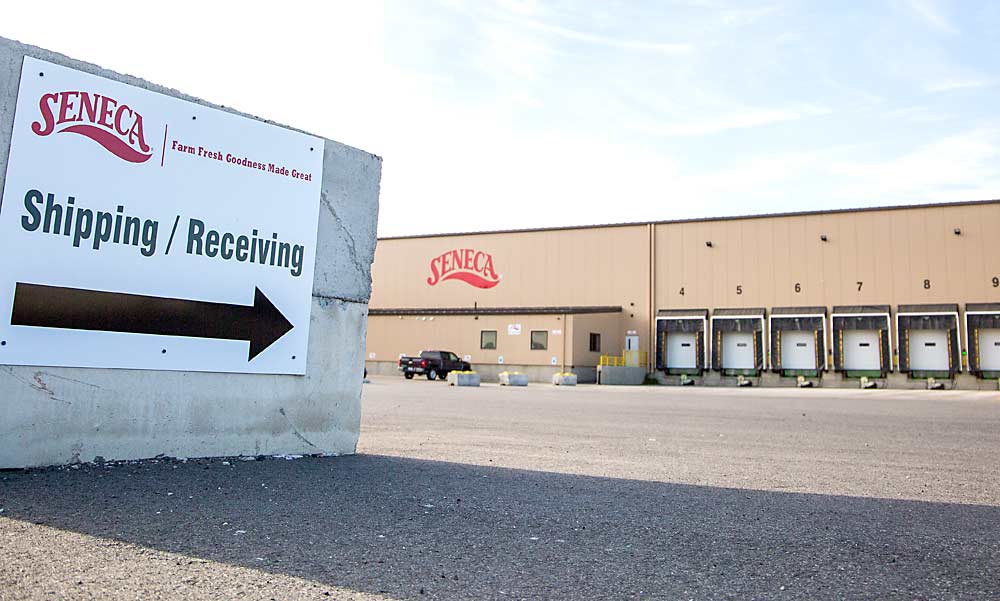
Seneca Foods plans to close its Sunnyside, Washington, fruit processing facility in the fall after the 2019 pear harvest, leaving the Northwest with only two pear canneries. (Ross Courtney/Good Fruit Grower)
Seneca Foods is getting out of the processed pear business and will shutter its Sunnyside, Washington, plant this fall.
The Marion, New York, food company plans to honor existing grower commitments to process the 2019 pear crop before closing sometime in October or November, Tim Benjamin, the chief financial officer, told the Good Fruit Grower on Thursday.
“We have commitments out there for pears this year and we will honor that,” Benjamin said.
The company also has struck a deal with Pacific Coast Producers of Lodi, California, to sell its remaining pear inventory and this year’s crop, Benjamin said.
Seneca owns one of three pear processing facilities in the Northwest, the nation’s top producing region. The others are Del Monte Foods Inc. in Yakima, Washington, and Neil Jones Food Co. in Vancouver, Washington.
Last year, Seneca processed roughly 18,000 tons of pears, Benjamin said. The other two split the remainder of a total 100,000 tons last year, said B.J. Thurlby, business manager of the Washington-Oregon Canning Pear Association.
The organization collectively negotiates a set price on behalf of growers with Del Monte and Neil Jones —$353 per ton in 2018 — while Seneca has historically followed suit and honored the same price. Negotiations for the 2019 price are underway now, Thurlby said.
“It’s sad and disappointing that we lose a good company like Seneca that’s been a partner for the industry for many years,” Thurlby said.
Thurlby suspects the other two companies have the physical capacity to pick up the difference, but the market can only handle so much. The entire U.S. canned food market, including pears, is declining due to an increased preference for fresh produce and a flood of cheaper imports.
“We haven’t been profitable there for a while,” Benjamin said of the Sunnyside plant. The company made a similar decision when it closed its peach processor in Modesto, California, in early 2018.
The Sunnyside plant has about 70 year-round employees and typically adds 200 or more during the peak harvest season, he said.
The company also processed 13,000 tons of apples in Sunnyside but won’t do any this year, Benjamin said.
“It wasn’t taken lightly, the whole thing,” Benjamin said. “We had some seriously dedicated people there in Sunnyside.”
—by Ross Courtney






Leave A Comment